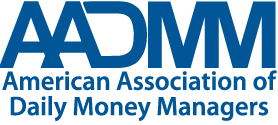
If you’re part of the sandwich generation — where you’re caring for children and aging parents — life can get pretty hectic. Especially if you’re managing your parent’s finances. Over the years we’ve seen what methods work best and what spells disaster.
Make Sure You Have Legal Access to Information
Many of our clients have to wrestle with an out-of-control financial situation. Typically, this happens when there’s an unexpected hospitalization or other emergency. My advice is to have “the talk” before a crisis occurs. Sheri Samotin, in her book Facing the Finish: A Road Map for Aging Parents and Adult Children, provides terrific advice for how to have “the talk”. Then you can get the necessary legal paperwork out of the way. If your parents have an estate plan, the plan probably has a signed Durable Power of Attorney (POA) form in it. If you’re not already designated, you’ll need to modify the POA. If they don’t have an estate plan or POA on file, then you need to work with a notary and/or an attorney, depending on which state you are in.
Sooner rather than later is a good rule of thumb. Even if your parent doesn’t need you to step in right now to manage their finances, having a signed POA will avoid future headaches, especially if they become incapacitated.
Create a Complete List of Financial Accounts
This sounds easy but in fact, it can feel a little like herding cats. A good starting point is a tax return and supporting documentation. For example, an account that pays more than $10 interest will be listed on the return. Hopefully, the tax file will contain other clues such as 1099-INTs (dividends, interest paid) and 1098s (mortgage interest). Be on the lookout for:
- A primary checking account (the one used for major bill paying)
- Any secondary checking accounts, often reserving funds to give individuals control over their own accounts or provide some independent “mad” money
- Savings accounts
- Certificates of deposits
- IRAs, annuities, and other retirement accounts
- Safe deposit boxes and home safe (seniors often like to squirrel away cash for a rainy day or emergencies)
- As you’re organizing a list of all your parents’ financial accounts, you’ll also notice clues on income sources (e.g., social security, pensions, annuity payments). Make a note as you’ll need this information for future budgeting and coordinating bill payment.
Checkbooks, AutoPays & Technology
When one of my clients had to take over their ailing mother’s financial accounts, she found 10 different checkbooks all over the house. Some needed to be shredded as they were no longer active or had incorrect information (e.g., a previous address). Be prepared to sift through mail, filed bills, and other hiding places to identify blank checks related to open accounts. Also note that some money market accounts also have check-writing options as do home equity lines of credit.
As you review bank and credit card statements you can also ferret out if there are any automatic payments set up. We find that seniors are often convinced to set-up autopay for recurring bills such as phone, electric/gas, and TV cable.
Armed with a complete list of bank accounts and a signed POA, you can now get online banking access. Doing so will allow you to manage your parent’s’ finances — and pay their bills — from any computer or phone. To further reduce paperwork from piling up, you can also set up online statements.
Don’t Have Time or Headspace?
Sometimes the kindest thing you can do for your parents and yourself is to get outside help. As a daily money manager, I’ve literally helped hundreds of families get control of their own finances and for their aging loved ones. We have systems in place to get paperwork organized faster… and to keep them organized.
By hiring a daily money manager, it doesn’t mean losing control. Actually, it’s just the opposite. You retain full access to all accounts and make financial decisions. You simply have others help you in getting things done like sorting through mail, reconciling accounts, finding ways to save money, etc.
Regardless of which route you choose — to manage it yourself or hire a professional — my best advice is to begin the process. To quote Benjamin Franklin “If you fail to plan, you are planning to fail.”
————
Alison Salisbury is the founder of Founder of Fiscally Fit, Inc. in San Francisco. A version of this blog post first appeared on the Fiscally Fit blog.





















